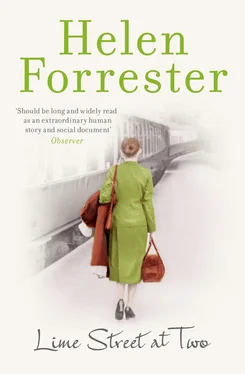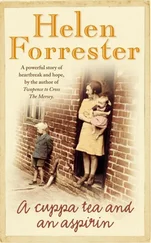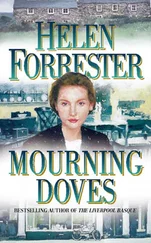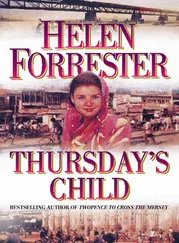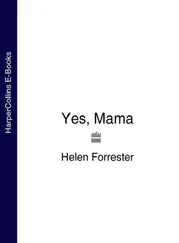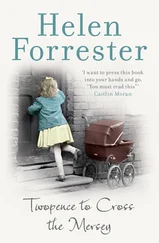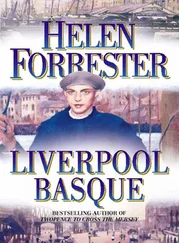In the middle of the road, I paused uncertainly.
An angry shriek came from further up the road. A warden beckoned me wildly. I ran towards him, where he stood behind a rope tied across the street.
He lifted the rope for me to duck underneath it, as if he believed that the rope itself would protect us from the possible blast.
Furiously, he thrust his thin, bespectacled face close to mine. ‘And how did you get down there? When we cordon off a place, it’s cordoned, and you’re not supposed to go there. You might be killed.’ He was genuinely concerned.
Gasping for breath, I muttered, ‘I came into work from the Derby Road side. I didn’t see any barrier. Perhaps the soldiers undid the rope to get their lorry in, and forgot to tie it across the road again. No wonder I didn’t have any clients or staff in the office. I think it’s defused now.’
‘Well, you stay right here, young woman, till they’ve taken it away. It can go off, defused or not defused, if some of its innards is ruptured.’
It is strange how strong the instinct to live is. I stood shivering by the warden for nearly an hour, until we saw the lorry roll slowly down the other end of the road, with its horrid burden in the back.
While I waited, I thought about Coventry, which, on 14th November, had been decimated in one enormous raid. I wondered if we would be the next victims.
Raids did continue, though none as heavy as that which destroyed Coventry. Amid the turmoil that they engendered, the problem of Christmas asserted itself.
We were determined to give the younger children the best possible Christmas. To Mother, it meant squeezing out of a reluctant butcher one of his few turkeys; to me, it meant contriving from nothing a gift for each child; and to all of us, it meant we could get a good sleep sometime during the daytime hours. The Germans, however, had other ideas. On the night of Friday, 20th December, we endured a very heavy air raid, with an even more severe one on the 21st. On the Sunday night, we shared a third intense raid with Manchester.
After the first raid, I went out and stood in the middle of our empty street, while the all clear howled eerily round me. Though there was no sign of damage in the street itself, the sky was suffused by the reflection of fires, and I wondered what would be awaiting me in the office that Saturday morning. Shivering with cold and apprehension, I went back into the house, to snatch a couple of hours of sleep before setting out on my long journey to work; I was thankful that my kind superior at the office had, at last, returned after her long battle with influenza. The raid had lasted ten hours, ten solid hours of bombardment. What a mess there would be for us to clear up. What a tremendous number of ruined lives to try to put together again.
Despite having to take several detours, the city bus and tram service was working very well. We passed scurries of activity where fires still burned, victims were being dug out, and dangerous, teetering walls pulled down. The Adelphi Hotel, the pride of Liverpool, had suffered badly from blast, and my fellow passengers on the tram viewed it with surprised exclamations, as if it should have been exempt from damage.
‘It was a land mine,’ the clippie told us. ‘Fell at the side of the building – in Copperas Hill.’
Copperas Hill was a narrow street of early 19th century houses, some boarded up as uninhabitable, a few used as offices, the rest still lived in by very poor people, who would that morning be a lot poorer – if they were still alive.
Feeling physically and mentally drained, I left the office very late that Saturday evening. The Luftwaffe had already been extremely busy for some hours.
I dithered on the office steps. The roar of flames, the whistle of bombs, seemed concentrated in Bootle and in the north end of Liverpool itself. I would have to pass through the area in order to get home.
Miss Evans had decided to work later, to catch up with her records, and then to sleep in the office. She insisted, however, that I should go home. ‘There isn’t much you can do to help me now – you’ll be safer at home,’ she said.
She was very brave. Looking up at the sky, all too full of shrieking, diving planes, it seemed likely that the office would not survive. Very reluctantly, I left her in the cold, empty building.
I walked up to Stanley Road, to see if, by chance, there was still a tram running to town.
The whole normally busy road was almost deserted, though in the distance I could hear the bells of a fire engine and, as I crossed the street, a van nearly ran me down. I listened for the answering guns in their emplacements in Bootle, but could not hear them. The searchlights were busy, though, flicking like metronomes across the sky.
In the light of flares, fires, tracer bullets and searchlights, it was easy to see. I felt cross; I was not going to be kept from home by any German planes. I began to walk.
When the even explosions of a stick of bombs seemed to be coming very close, I dodged into doorways, pressing myself tightly against whatever door presented itself. Twice I found a public shelter, crowded with people, some singing, some praying, rosaries in hand, and was urged by wardens to remain there. But I was obsessed with the need to get home, and immediately there was a slight pause in the racket, I slipped out and pressed onwards. At several points, the raid passed right overhead at a time when there seemed no place to hide. I went down on my knees in the road and then flattened myself against the kerb, face tucked into the tiny corner of protection that it offered; and listened to hasty footsteps running on the pavement, as others tried to find a refuge, while I eased myself slowly along the gutter. Further down the road, I heard someone cry out in pain and the sound of anxious voices, as a person was struck, presumably by flak. A series of bombs appeared to hit the next street, and I was suddenly glad that I had been faced with a blank wall on my side of the street, and was consequently, sprawled in the gutter; if there had been a house or shop-doorway in which to shelter, I could well have been speared by glass slivers bursting from the win-dows.
On the theory that a moving object was harder to hit than a stationary one, I ran like a frightened alley cat, in the hope of avoiding an incendiary bomb or heavy piece of debris falling on me. Incendiary bombs, though quite small, were deadly if they fell on someone, and flak from our anti-aircraft guns or flying pieces of rubble and glass from bombed buildings, were more of a menace than the chance of being caught directly by an exploding bomb. Another great danger was from falling power lines, still live and spitting like angry dragons.
At the junction of Cazneau Street with Scotland Road, which is the continuation of Stanley Road towards the city, I hesitated. The violence of the raid had momentarily decreased, and the blackout appeared to have taken over again. If I went up Cazneau Street, I could bypass the city centre which was probably under attack. Cazneau Street was, however, a fearsome slum with which I was not familiar, and I feared that once I crossed London Road, a main artery which bisected that particular line of streets, I would get lost. Mind made up, I trotted along Scotland Road. I was shivering with nervous determination to outwit the Luftwaffe and get home safely.
As I neared the city centre, there was more traffic about and more pedestrians; raucous male voices called after me as they glimpsed the outline of a young female. I increased my speed and panted onwards towards the Old Haymarket, a vast open space into which the Mersey tunnel debouched from under the river.
‘I’ll cross William Brown Street, where the Picton Library is, and skirt around the wall of St John’s Garden. It’ll give me a bit of protection,’ I told myself. By doing this I avoided the wide-open spaces of this handsome part of Liverpool and would be less likely to be hit. I would also bypass most of Lime Street, still the main walk for prostitutes in the city, where I had no doubt it would be business as usual, blitz or no blitz; it was not the ladies I feared, but their pimps and hangers-on.
Читать дальше
